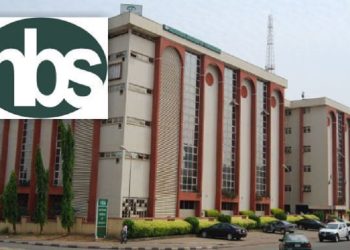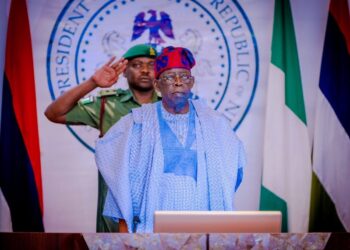The Nigerian telecommunications industry is grappling with an unprecedented tax burden, which has raised concerns about the future of high-speed internet expansion in the country. In the first half of 2024 alone, MTN Nigeria, Nigeria’s largest mobile network provider, paid an astounding ₦232 billion in taxes. This figure represents a staggering 586% increase compared to the same period last year.
The tax obligations faced by MTN Nigeria included 54 separate taxes imposed by various federal, state, and local government agencies. The Association of Licensed Telecommunication Operators of Nigeria (ALTON) reports that most of these taxes are levied by state governments. They encompass a wide array of charges, including building permits, sewage fees, and storage licenses.
Gbenga Adebayo, President of ALTON, highlighted that these tax increases have led to a 50% rise in operational costs for telecommunications companies in 2024. He pointed out that while some taxes are legally mandated, others are arbitrarily imposed. For example, the newly established National Association of Telecom Landlords in Bayelsa has introduced levies that lack legal backing.
“The multiple taxes are primarily driven by revenue needs,” Adebayo explained. “There is a perception that the telecoms sector is highly lucrative and therefore can be exploited for revenue.”
The surging tax environment poses a serious threat to Nigeria’s efforts to expand broadband infrastructure, which is essential for integrating millions of Nigerians into the digital economy. According to the Nigerian Communications Commission (NCC), as of December 2023, 27.91 million individuals across 97 communities still lack reliable high-speed internet, with states like Niger experiencing a complete absence of such services.
Compounding the issue is the inconsistency in right-of-way (RoW) fees for laying fiber optic cables. Federal agencies charge ₦145 for fiber installation on highways, while the Nigerian Inland Waterways Agency imposes ₦2,500 per linear square meter for fiber laying along waterways and bridges. State fees vary significantly, from as low as ₦1 per kilometer in Kwara to as high as ₦9,000 in Oyo State.
Some states, including Osun, Lagos, Cross River, and Abuja, have invested in fiber ducts to protect cables and lease these to operators. However, the dual charges for leasing ducts and right-of-way make this arrangement costly. Telecom operators such as MTN, Airtel, and Globacom continue to face high expenses despite using these ducts.
Manish Kochhar, former Chief Technology Officer at Globacom, criticized the states for their tax practices. “States often impose high charges and fail to protect the infrastructure from damage caused by construction projects, leading to degraded cable quality and poor connectivity.”
The Presidential Fiscal Policy and Tax Reforms Committee, which was established in 2023, promised to review and harmonize telecom taxes. However, there has been no recent update on their progress concerning these tax issues. Taiwo Oyedele, Chairman of the committee, did not respond to requests for comment.
In response to the mounting tax pressures, some telecom operators have begun negotiating directly with state governments. For instance, Lagos State granted MTN Nigeria a right-of-way waiver in exchange for providing free high-speed internet to public institutions. Edo State has also offered waivers and tax incentives to operators willing to engage with it.
During a recent stakeholder meeting organized by the Association of Telecommunication Operators of Nigeria (ATCON), state ICT commissioners from Niger, Kogi, and Cross River urged telecom operators to engage more actively with state authorities to address these issues.
As Nigeria continues its push to improve digital connectivity, the resolution of these tax-related challenges will be crucial in ensuring the successful expansion of broadband infrastructure across the country.









